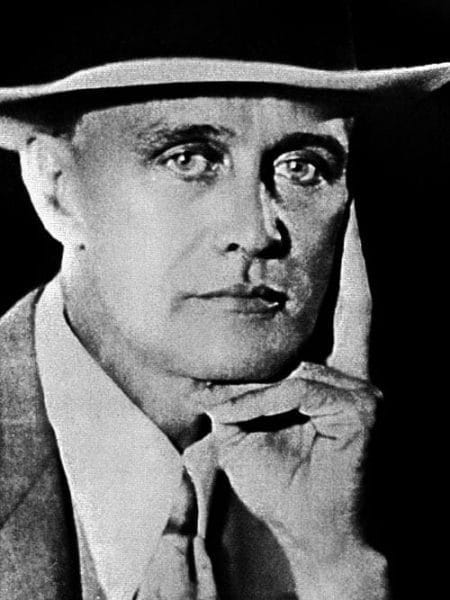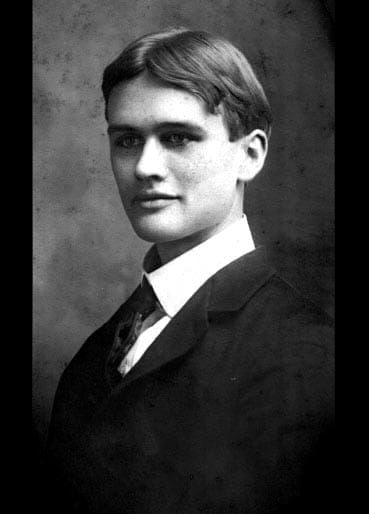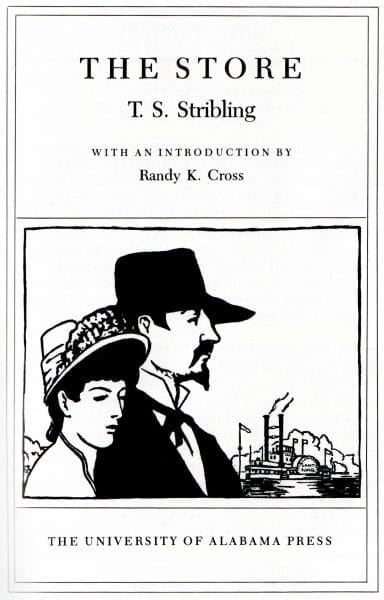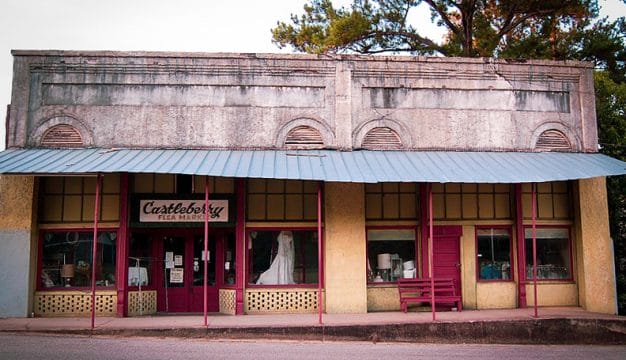T. S. Stribling
 T. S. Stribling
T. S. Stribling (1881-1965) is the author of 16 novels, numerous articles, and an autobiography, published posthumously. He is best known for his trilogy of works set primarily in and around Florence, Lauderdale County, from pre-Civil War days to the early twentieth century. The second novel in that trilogy, The Store, won the 1933 Pulitzer Prize for Fiction.
T. S. Stribling
T. S. Stribling (1881-1965) is the author of 16 novels, numerous articles, and an autobiography, published posthumously. He is best known for his trilogy of works set primarily in and around Florence, Lauderdale County, from pre-Civil War days to the early twentieth century. The second novel in that trilogy, The Store, won the 1933 Pulitzer Prize for Fiction.
Thomas Sigismund Stribling was born March 4, 1881, in Clifton, Tennessee, to Christopher Columbus Stribling and Amelia Waits Stribling. Although Clifton was his primary residence, Stribling spent many of his boyhood summers in Gravelly Springs, the Lauderdale County farm of his maternal grandparents. Stribling used this setting for several of his novels. Stribling’s father was a Union soldier captured during the Battle of Shiloh, and he went on to become a postmaster and general store operator in Clifton. He disapproved of Stribling’s desire to become a writer and refused to pay for his son’s education unless he entered one of the professions. Accordingly, Stribling graduated from the Florence Normal School (now the University of North Alabama) and then attended the University of Alabama School of Law, graduating in 1905. He practiced law in Florence for soon-to-be-governor Emmet O’Neal and later for another attorney, John Ashcraft.
 T. S. Stribling
Stribling’s days as a lawyer were short-lived. In 1907, he moved back to Tennessee, where he wrote magazine articles and later reported for the Chattanooga News. His love for writing fiction took over when his first novel, Cruise of the Dry Dock, was published in 1917. Birthright, Stribling’s second novel (published in 1922), told the story of an educated mixed-race man living in a small southern town rife with racial prejudice. In 1924, the book was adapted for the screen by African American director Oscar Micheaux and featured an all-black cast. Micheaux remade the film with sound in 1939. Stribling’s 1926 novel Teeftallow became his first best-seller and was adapted to the Broadway stage and retitled Rope; it closed after 32 performances.
T. S. Stribling
Stribling’s days as a lawyer were short-lived. In 1907, he moved back to Tennessee, where he wrote magazine articles and later reported for the Chattanooga News. His love for writing fiction took over when his first novel, Cruise of the Dry Dock, was published in 1917. Birthright, Stribling’s second novel (published in 1922), told the story of an educated mixed-race man living in a small southern town rife with racial prejudice. In 1924, the book was adapted for the screen by African American director Oscar Micheaux and featured an all-black cast. Micheaux remade the film with sound in 1939. Stribling’s 1926 novel Teeftallow became his first best-seller and was adapted to the Broadway stage and retitled Rope; it closed after 32 performances.
In 1930, Stribling married music instructor Louella Kloss (1899-1993), who was 18 years his junior. Stribling continued to write about the social issues in the South, gaining critical praise. Also in 1930, he finished The Forge, the first novel of his epic trilogy about the Old South, where cotton was king and where white plantation owners dominated every aspect of their enslaved workers lives. The trilogy traces the lives of the fictional Vaiden family of the Lauderdale County area and addresses many topics considered taboo in the South. The second of the three novels, The Store, published in 1932, went on to win the Pulitzer Prize for Literature. Stribling was apparently so unimpressed with the award that he showed it to his wife once and put it in the attic, never to examine it again. Unfinished Cathedral, published in 1934, was the third novel in the trilogy.
 The Store
Although The Store received accolades from readers and writers worldwide, it was not welcomed warmly by residents of Florence because the novel highlighted social and political injustices in the town and presented realistic portrayals of racial relations. In fact, some residents considered suing Stribling for libel, and libraries in Florence and Tuscumbia refused to carry the book. News of the possible suit made its way to Stribling, who even contributed $100 to the libel fund against him. He never denied the allegations of using Florence citizens as models for his characters and even wrote an apology to the city of Florence in the local newspaper in 1934. Even after the apology was published, however, Stribling did not return to Florence for 30 years, when he was asked to speak at Florence State College (now the University of North Alabama). After that visit, he spoke on a number of occasions at schools and functions in and around Florence and Lauderdale County. Ironically, The Store then became required reading for all of Florence State’s freshman English classes.
The Store
Although The Store received accolades from readers and writers worldwide, it was not welcomed warmly by residents of Florence because the novel highlighted social and political injustices in the town and presented realistic portrayals of racial relations. In fact, some residents considered suing Stribling for libel, and libraries in Florence and Tuscumbia refused to carry the book. News of the possible suit made its way to Stribling, who even contributed $100 to the libel fund against him. He never denied the allegations of using Florence citizens as models for his characters and even wrote an apology to the city of Florence in the local newspaper in 1934. Even after the apology was published, however, Stribling did not return to Florence for 30 years, when he was asked to speak at Florence State College (now the University of North Alabama). After that visit, he spoke on a number of occasions at schools and functions in and around Florence and Lauderdale County. Ironically, The Store then became required reading for all of Florence State’s freshman English classes.
After his renowned trilogy was finished, Stribling authored two more novels, Sound Wagon in 1935 and These Bars of Flesh in 1938. He also spent time traveling and served on the English faculty at Columbia University. In his heyday during the 1920s and 1930s, Stribling’s novels sold more than any author (including William Faulkner and Ernest Hemingway). He was Doubleday Publishing’s best-selling author at the time, with his trilogy selling more than 240,000 copies.
Stribling died in Florence on July 8, 1965, and was buried in Clifton Cemetery alongside Louella, who died in 1993. Stribling’s autobiography, Laughing Stock, was published posthumously in 1982. Stribling’s work is still read and studied today primarily in the South, where his novels remain among the must-reads among some secondary schools and colleges.
Further Reading
- Cross, Randy, and John McMillan, eds., Laughing Stock: The Posthumous Autobiography of T. S. Stribling. Memphis: St. Luke’s Press, 1982.
- Spurlock, Jefferson T. “T. S. Stribling: To Residents of Clifton, Tennessee, There is No Other Author.” In Themes of Conflict in the Nineteenth and Twentieth Century Literature of the American South: The Proceedings of the 2004 Conflict in Southern Writing Conference, edited by Ben P. Robertson. Lewiston, N.Y.: Edwin Mellen Press, 2007.
- Vickers, Kenneth W. T. S. Stribling: A Life of the Tennessee Novelist. Knoxville: University of Tennessee Press, 2004.



